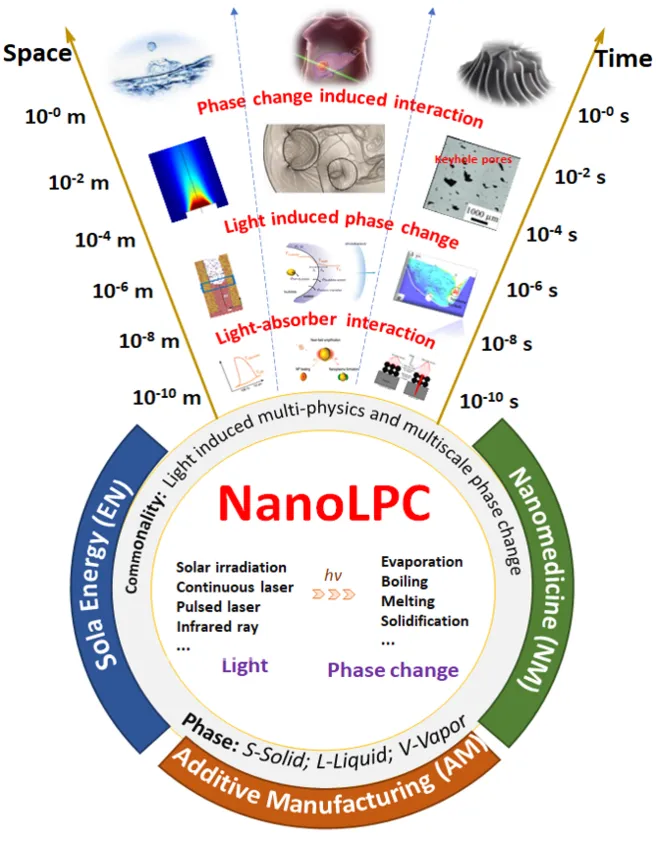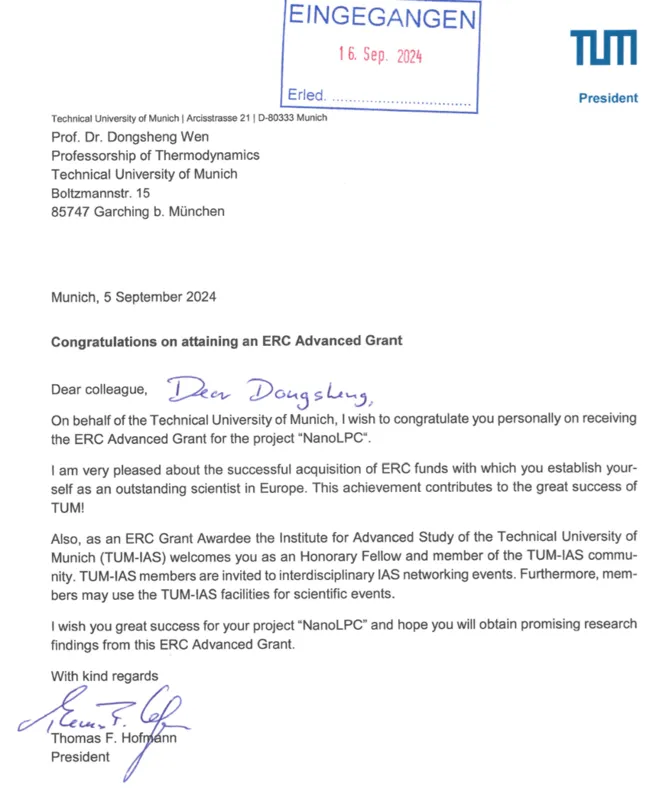The winning project is called ‘NanoLPC’: Engineering light induced phase change for emerging nanoscale processes
Phase change such as vaporization, condensation, melting and solidification is a first-order phase transition involving latent heat, which is an old topic but has become increasingly important for many emerging applications. In additive manufacturing for metals, melting and solidification are the basics of the printing process, but laser induced vaporisation and the formation of keyhole pores, i.e., porosity defects, are currently a major limiting factor for 3D printing. In nanomedicine area, various nanomaterials are used for controlled drug delivery and therapies, and laser excited nanobubble growth and collapse inducing shockwave is a powerful tool for ablating vitreous opacities in vivo. In solar energy utilization, direct steam / vapor production from bulk or surface fluid is a promising technology for enhancing solar energy efficiency in the post-fossil fuel era and improving clean water production.
The fundamental physics governing these apparently different processes is the light-induced phase change (LPC) due to the strong non-linear interaction of light and absorbing materials, leading to different phase change phenomena across different scales. These apparently different processes follow some common consequent paths, i.e., light-absorber interaction leads to temperature rise of the absorber, which induces localized phase change, and phase change interaction with the surrounding renders different effects, either preferred or unwanted.
The winning of this 2.5 million Euro grant will enable Prof. Wen to investigate fundamentally LPC as the unifying theme for different emerging processes, tackle the fundamental challenges of the formation and control of LPC, and develop a physics-informed platform, supported by multiscale experimentation and multiscale simulation, as the tool to design and engineer LPC as innovative mechanism for in situ process steering and control. Click here for more information about NanoLPC. The project also opens a number of job opportunities for ambitious researchers to work at the forefront of this exciting project.
This is the second time that Prof. Wen has won the ERC grant. His previous ERC consolidate grant was to develop novel in-situ produced nanomaterials for enhanced oil recovery (iNanoEOR), which was hosted at the University of Leeds. https://cordis.europa.eu/project/id/648375 . In that project, Prof. Wen developed innovative nanomaterials as subsurface sensors and nano-carriers for controlled chemical delivery, and pioneered the nanotechnology application in subsurface engineering, from enhanced oil recovery to environmental remediation.

